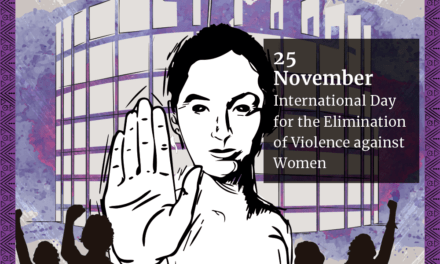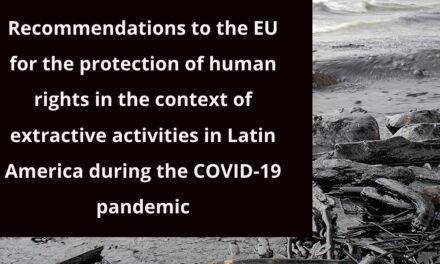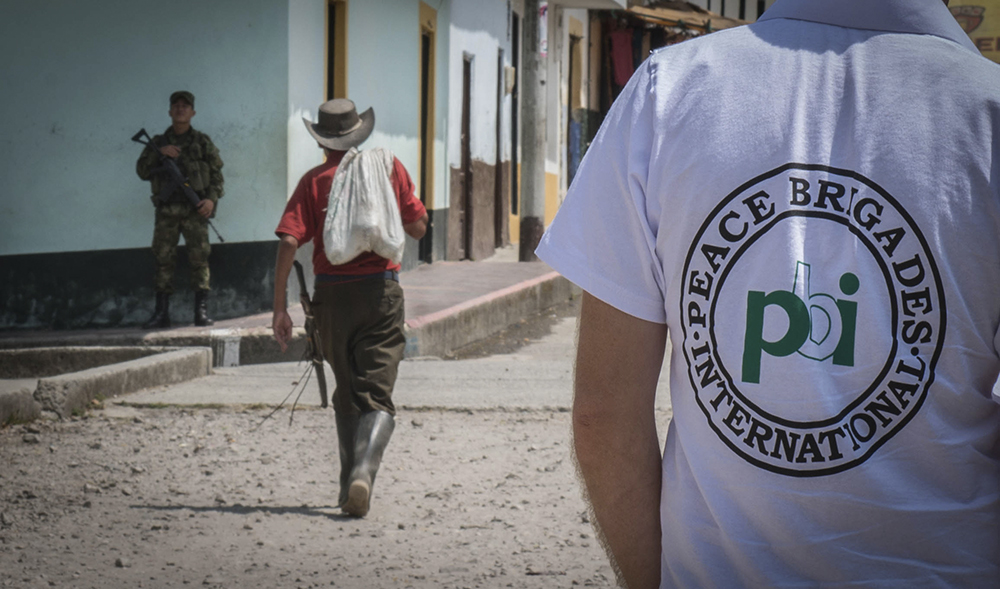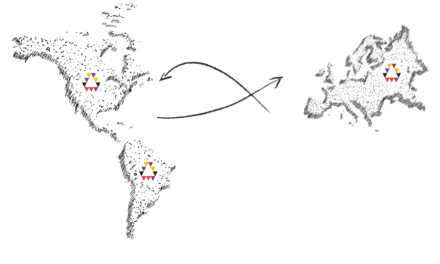Brussels, 11th of December 2012 – The European Parliament has prioritised trade over human rights and sustainable development today in a vote that brings into force two agreements between the European Union and Central America, and Colombia and Peru. The agreements will not do enough to address human rights abuses in Latin America, and do not take into consideration the asymmetries between the two regions, according to broad group of civil society organisations (ALOP, APRODEV, CIFCA, CNCD -11.11.11, FIAN, FOE, GRUPO SUR, OIDHACO).
The European Parliament prioritises trade interests over human rights and sustainable development Brussels, 11th of December 2012 – The European Parliament has prioritised trade over human rights and sustainable development today in a vote that brings into force two agreements between the European Union and Central America, and Colombia and Peru. The agreements will not do enough to address human rights abuses in Latin America, and do not take into consideration the asymmetries between the two regions, according to broad group of civil society organisations [1]. In October, more than 160 European and Latin American civil society organisations sent a letter to the European Parliament, demanding it reject the Free Trade Agreement between the European Union and Colombia and Peru. In June, 11 Central American networks and six European and international networks pronounced their opposition to the Association Agreement between the European Union and Central America signed in Honduras on the 29th of June, one day after the third anniversary of the coup d’état en Honduras. These appeals came amid fears of the dramatic consequences these agreements might have on human rights, food sovereignty, local economies such as the dairy sector and the environment – impacting the lives of entire communities. The two agreements build upon the ‘business as usual’ model of raw material extraction and export from Latin American countries to the European Union – a model proven to favour transnational corporations over inclusive and sustainable development. For example, the European Commission’s own study on the sustainability impacts of the agreements show an increase in biofuel production for export – with the resulting increase of pressure on land. The impacts of this are being felt by rural populations, especially indigenous peoples [2]. The European Union argues that these agreements will strengthen action in the field of human rights, in particular through the democratic clause of the two agreements that will allow for the suspension of the agreements in case of serious human rights violations. However, according to undersigned organisations the agreements do not go far enough to guarantee the respect for human rights. According to studies by the London School of Economics commissioned by the European Parliament in March this year, the two agreements lack mechanisms for monitoring and enforcing human rights, highlighting that there is no there is no specific mechanism to monitor the implementation of the human rights clause, or a subcommittee dedicated to monitoring human rights and democracy issues. Colombia remains the most dangerous country for trade unionists in the world. The Office of the Prosecutor of the International Criminal Court has reported there is a reasonable basis to believe that crimes against humanity have been committed in Colombia both by the State and by paramilitaries and members of the guerrillas. Ten trade unionists were murdered in Guatemala in 2011; the UN has proclaimed Honduras to be one of the most violent country in the world and the most dangerous for journalists and peasant organisations [3]. Could it be that, even so, tough the countries of the two regions meet the criteria of the European Union on human rights?
In November, the governments of Colombia and Peru submitted documents in response to the request of the European Parliament to develop a legally binding “roadmap” oriented towards concrete results in human rights, environment and labour standards. According to civil society organisations, these documents lack concrete results, and in addition do not include specific measures to mitigate the impacts of these agreements. The agreements still need to be ratified by the European Union member states. National parliaments are called upon to listen to the outcry of the Latin American and European people and give priority to human rights and sustainable development. *** For further information please contact: Erika González Ramírez erika.gonzalez.press@gmail.com + 32 479 74 3319 *** NOTES [1] ALOP, APRODEV, CIFCA, CNCD, FIAN, Friends of the Earth Europe, Grupo Sur, OIDHACO [2] For more information see the report “EU Trade Agreements with Central America, Colombia and Peru: Roadblocks for Sustainable Development” by ALOP, APRODEV, CIFCA, Grupo Sur and OIDHACO, http://www.fta-eu-latinamerica.org/… [3 ]http://www.igbau.de/Binaries/Binary… http://www.unhcr.org/refworld/docid…
Related documents:
Press release ratification of association agreement EU Centralamerica (PDF)




